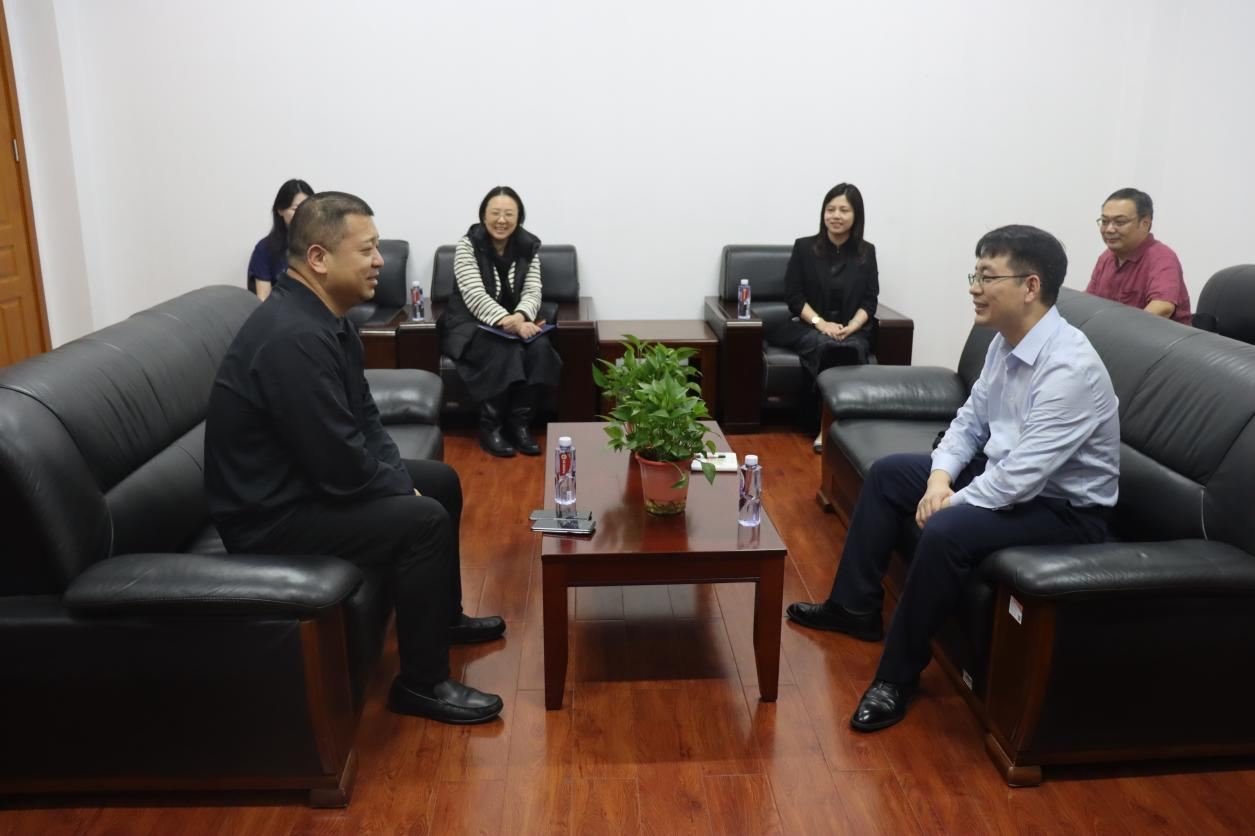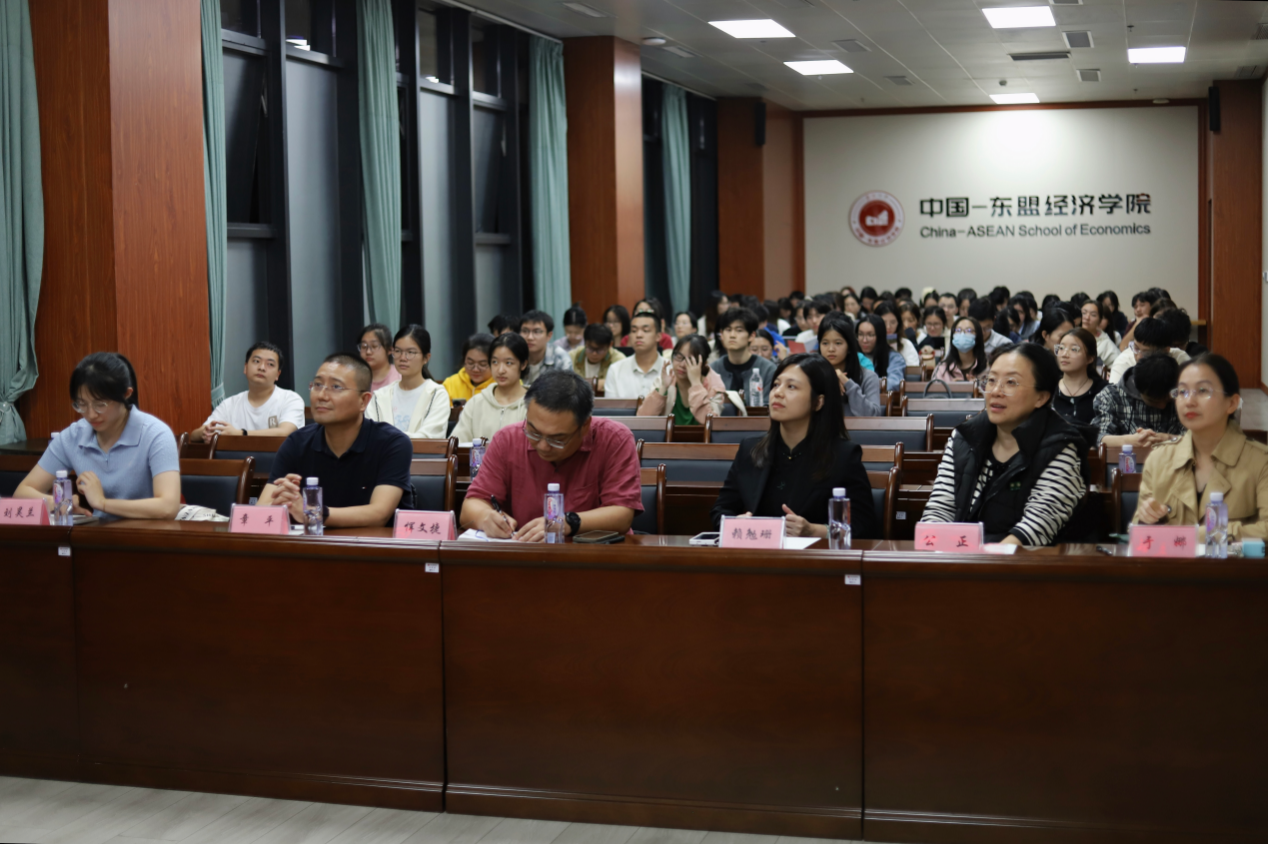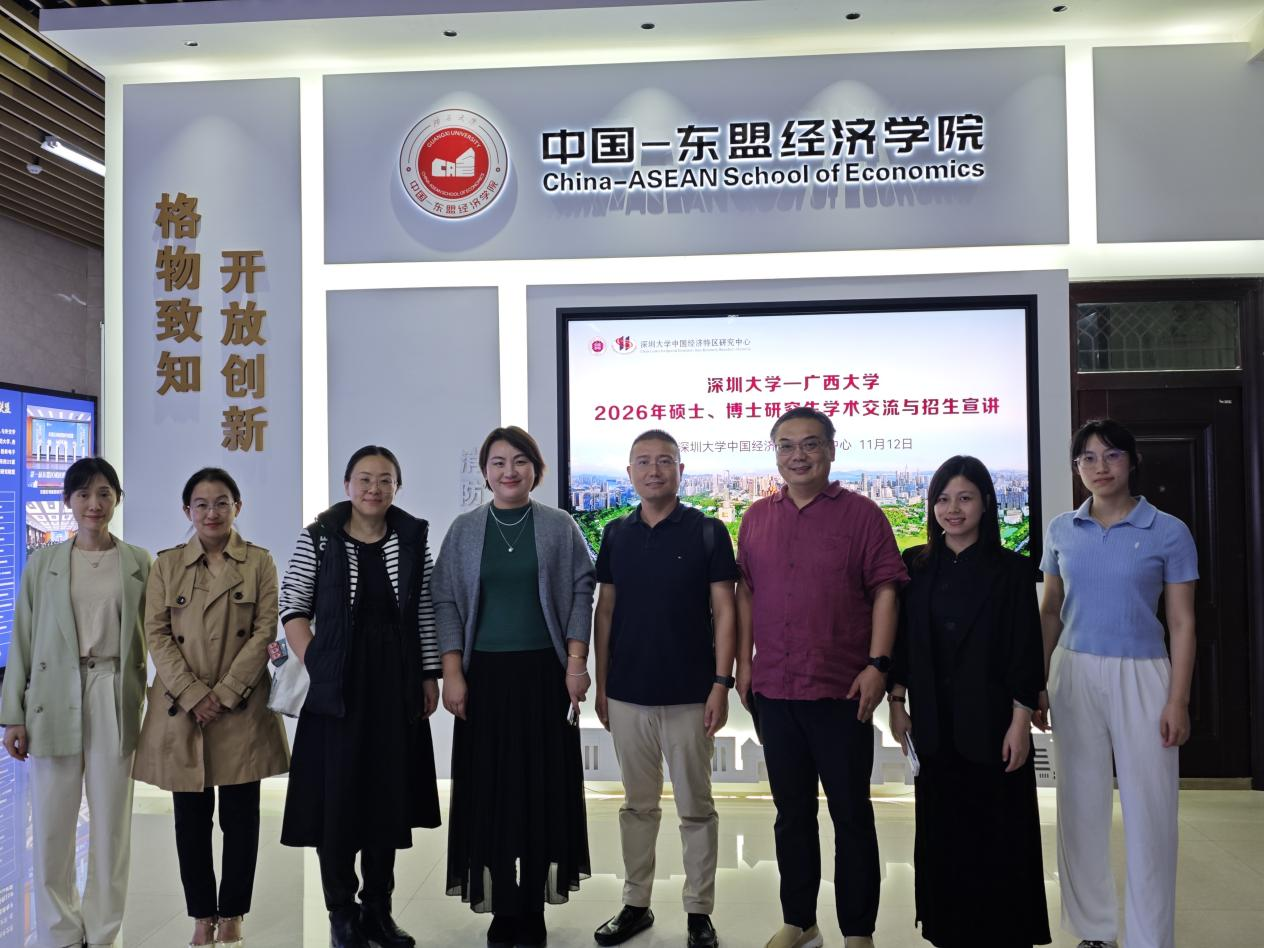On November 12, a delegation from China Special Economic Zone Research Center of Shenzhen University visited China-ASEAN School of Economics, holding a cooperation symposium and a Graduate Admissions Information Session successively, promoting substantial steps in disciplinary co-construction, scientific research collaboration, and talent cultivation between the two institutes.

Executive Deputy Secretary Jiang Wei held talks with the delegation
Jiang Wei, Executive Deputy Secretary of the Party Committee of the school, held talks with Yi Zelong, Secretary of the Party General Branch and Director of the China Special Economic Zone Research Center. The two sides had in-depth discussions on serving national strategies, promoting regional development, and strengthening interdisciplinary collaboration, and reached important consensus on jointly building and sharing high-quality educational resources.

Symposium held between the two institutes
At the symposium, Liu Mengjuan, deputy secretary of the Party Committee of the school, introduced the research characteristics and achievements of the school in the field of China-ASEAN regional economic cooperation. Yi Zelong expressed the willingness to cooperate in scientific research collaboration, platform co-construction, and joint graduate training, hoping to fully leverage the disciplinary advantages of both sides and broaden the research perspective.

Graduate Admissions Information Session hosted by China Special Economic Zone Research Center of Shenzhen University
The Graduate Admissions Information Session hosted by the China Special Economic Zone Research Center of Shenzhen University in the evening was filled with enthusiasm, as the classroom was packed to capacity. Professors Lai Mianshan, Zhang Ping, and Yun Wenjie from Shenzhen University delivered presentations covering academic strengths and career prospects, research directions, and international exchanges, painting a clear roadmap for students' academic development. During the Q&A session, students actively posed questions while professors patiently addressed them.
Such events not only built a bridge for in-depth cooperation between the two institutes, but also provided students with a valuable opportunity to broaden their academic horizons and plan their future development. Both sides expressed that they would take this exchange as a starting point to continue further cooperation, and jointly provide more high-quality talents for national strategy and regional development.

Group photo of representatives of the two institutes
Written by Hu Rong, Zhang Yuxuan, Wang Lindong
Translated by AI
Proof Read by Yu Na, Chen Yanyang
Edited by Gan Ziying
Reviewed by Gong Zheng


 ADD:No.100 Daxue Road, Nanning, Guangxi, China
ADD:No.100 Daxue Road, Nanning, Guangxi, China Tel/Fax:+86-0771-3186687
Tel/Fax:+86-0771-3186687 Email: gse@gxu.edu.cn
Email: gse@gxu.edu.cn